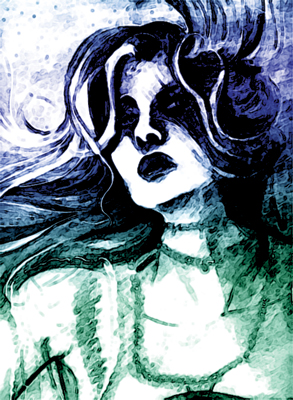All Nonfiction
- Bullying
- Books
- Academic
- Author Interviews
- Celebrity interviews
- College Articles
- College Essays
- Educator of the Year
- Heroes
- Interviews
- Memoir
- Personal Experience
- Sports
- Travel & Culture
All Opinions
- Bullying
- Current Events / Politics
- Discrimination
- Drugs / Alcohol / Smoking
- Entertainment / Celebrities
- Environment
- Love / Relationships
- Movies / Music / TV
- Pop Culture / Trends
- School / College
- Social Issues / Civics
- Spirituality / Religion
- Sports / Hobbies
All Hot Topics
- Bullying
- Community Service
- Environment
- Health
- Letters to the Editor
- Pride & Prejudice
- What Matters
- Back
Summer Guide
- Program Links
- Program Reviews
- Back
College Guide
- College Links
- College Reviews
- College Essays
- College Articles
- Back
The Power of No MAG
As a dedicated “Law & Order: SVU” viewer and overall media consumer, I know the stereotypes regarding rape: It happens in a dangerous, scary setting to an unsuspecting victim who ends up visibly injured, and is committed by a middle-aged, violent perpetrator. However, I learned first-hand that stereotypes are not necessarily the case.
I was raped. Not in a dark alley or by a man wearing a ski mask, and I wasn't left with any visible cuts, bruises, or scars. I was raped by a guy I was dating.
It was a half day toward the end of the school year, and after school I went with my boyfriend to his empty house. We kissed for a while in his room, then he said he wanted to have sex. I kept saying no, that I wasn't ready, that I didn't want to, but he kept asking. I knew that he wouldn't drop it. Finally I submitted.
The entire time, I cried and trembled, but he didn't stop. I kept asking myself, Doesn't he care about me? but he seemed not to notice my distress.
Afterwards I didn't know what to do. I acted like I was fine, but I couldn't bear to look at him. I was ashamed beyond belief.
A week or two later I broke up with him. I had tried to end it twice since the rape, explaining that I felt pressured sexually, but he begged me to stay with him. I didn't see him all summer, and I was able to push the memory of the traumatic experience to the back of my mind. However, I couldn't completely forget what had happened. I had constant battles with myself:
It's my fault.
No, it's his fault.
He didn't violently force me, so it's not really rape.
You didn't want to; that's all that matters.
I should have fought back.
No, you shouldn't have needed to. He should have respected you.
When school began again that fall, I started dating someone else, and he was the first person I told about the rape. He was incredibly kind and sympathetic, assuring me that it was not my fault. Even with his support, I still blamed myself. I often had nightmares of being raped again and would wake up in a cold sweat. Whenever my rapist passed me in the halls at school, smiling and waving, I would duck my head, ashamed. I'd think, Doesn't he care what he did to me? Doesn't he know how much he hurt me? Does he think he didn't do anything wrong? Then I would start the internal debate all over again about whether I had in fact been victimized, making it impossible to focus in my next class.
Now, the nightmares are gone for the most part, and I no longer blame myself. I still get upset when thinking, talking, or writing about the rape, but by not suppressing the memory I have been able to move past it. Because of this experience, I have strong feelings about the rape culture in America.
The real problem today is that we teach girls how not to get raped instead of teaching boys not to rape. By instructing girls in how not to get raped, we incorrectly put the responsibility on them, so if they are raped or violated, they feel it's their fault for inadvertently “asking for it” or not preventing it somehow.
By making rape victims feel responsible, we as a culture make it even harder for women to report sexual assaults and get the help they need. Our society must instead teach boys to respect women and treat them appropriately.

Similar Articles
JOIN THE DISCUSSION
This article has 1 comment.

6 articles 0 photos 9 comments
Favorite Quote:
Love exsists, dont search for it. Because it will find you.